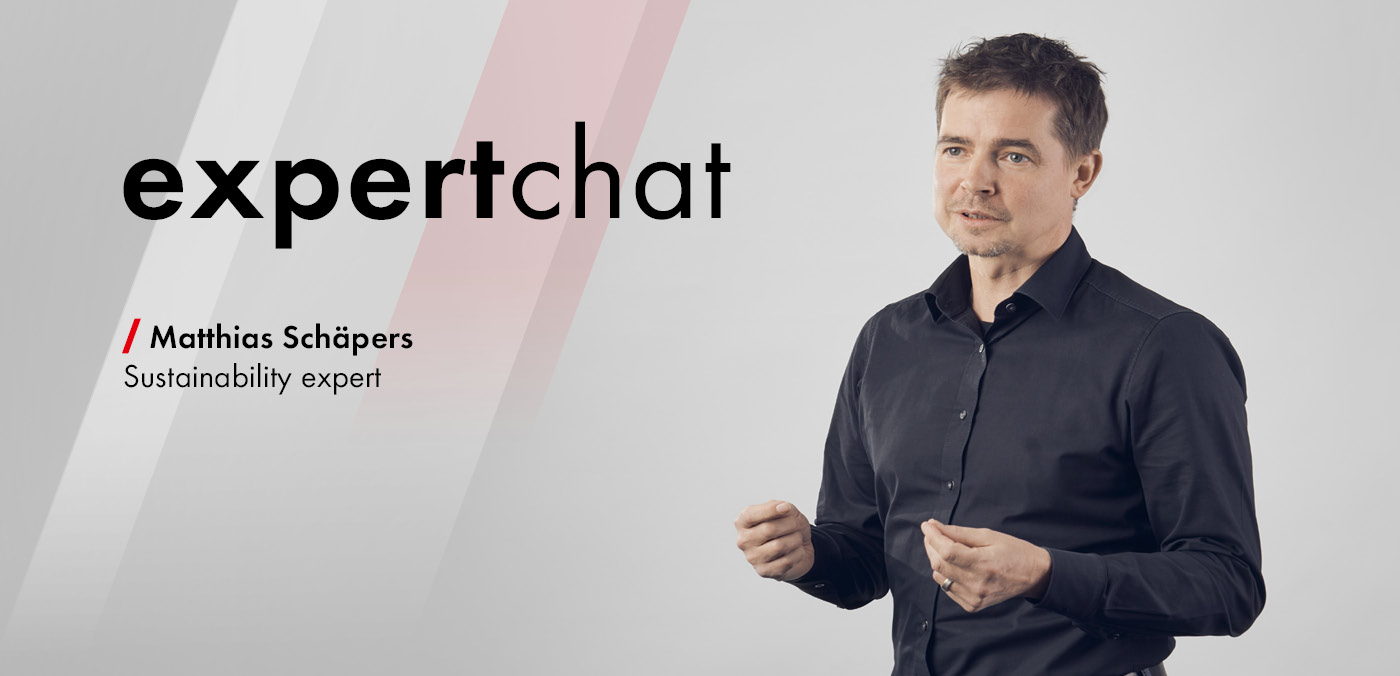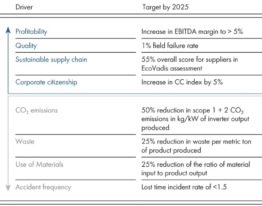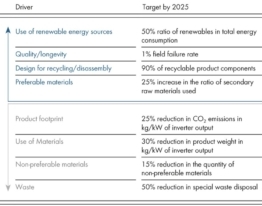Sustainability – more than greenwashing

Thanks to the Fridays for Future movement, sustainability and climate protection are at the top of the political and corporate agenda worldwide. Matthias Schäpers is extremely pleased about this. After all, sustainability is a topic close to his heart – and not only since he started as a sustainability manager at SMA, advancing the company’s sustainability strategy. What annoys him, on the other hand, is companies that only pretend to be sustainable. He knows exactly how to recognize them.
Why is sustainability so important right now?
In industrialized countries, in particular, we have been living beyond our means for a long time and using many more resources than we actually have available. For example, if people everywhere were to live as they do in Germany we would need three planet Earths to sufficiently supply everyone. It is therefore right and proper that young people protest because if we go on like this, it will have a negative impact on their future living conditions. The same applies to developing and newly industrialized countries, which rightly wish to increase their standard of living but without being able to use the same amount of resources as we do. Therefore, it is extremely important that we start now to drastically reduce our consumption of resources and focus on far-sighted and sustainable development for the benefit of all.
What role do companies play here?
In addition to political decision-makers, who have to set the framework conditions for sustainable business, companies are very important players here because it is up to them to decide, for example, whether they use resources efficiently, recycle a lot and minimize their carbon footprint by using renewable energies. Many companies have also recognized this and developed good sustainability strategies. Unfortunately, however, there are at least as many companies that see sustainability merely as a PR factor and present themselves to the outside world as greener than they really are. What particularly annoys me is that even companies from the solar industry engage in greenwashing. However, our industry, in particular, needs to act sustainably.
How can we tell truly sustainable companies and products from those that only pretend to be green?
This isn’t easy for laypersons; you have to look very carefully. It’s important that sustainability is closely linked to the company’s strategy and covers all areas of the company as well as the entire supply chain. Companies should regularly report their key sustainability factors, goals and progress in a transparent manner and not hide any critical issues. This reporting is only really credible if it does not just pick and choose. This is why truly sustainable companies report according to internationally recognized standards such as the Global Reporting Initiative (GRI).
For products, internationally uniform eco design standards and labels with stringent requirements can also provide some direction. In the U.S., the NSF/ANSI 457 – 2019 standard for photovoltaic modules and inverters already exists. SMA was also involved in this, and we are currently working on an ecodesign standard in the EU.
And what does SMA’s sustainability strategy look like?
At SMA, sustainability has always been firmly anchored in our corporate mission statement and strategy. Even the founders of the company set the goal of combining long-term business success with environmental protection and social responsibility. This is just as relevant for us today after nearly 40 years. In our sustainability strategy, we have defined four fields of action for our commitment to sustainability based on an intensive stakeholder dialogue. These are products and processes, environment and energy, employees and social responsibility. We measure our success on the basis of product and corporate key performance indicators for which we have set ourselves specific and ambitious goals:
I’m particularly proud of this because these indicators not only make us highly transparent, but they also consciously embody the core of what makes a company sustainable in the first place: the balance between economic, ecological and social aspects. Goal attainment is reported every year in our Non-financial Report in accordance with the GRI standard. Our initial evaluations show that we are on the right track.
Thank you, Matthias, for the interview.
Learn more about sustainability at SMA here.
More information on inverter sustainability can be found in this PV Magazine article.




Feel free to contribute!